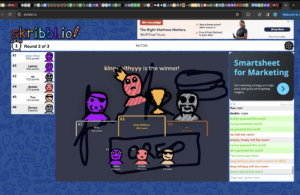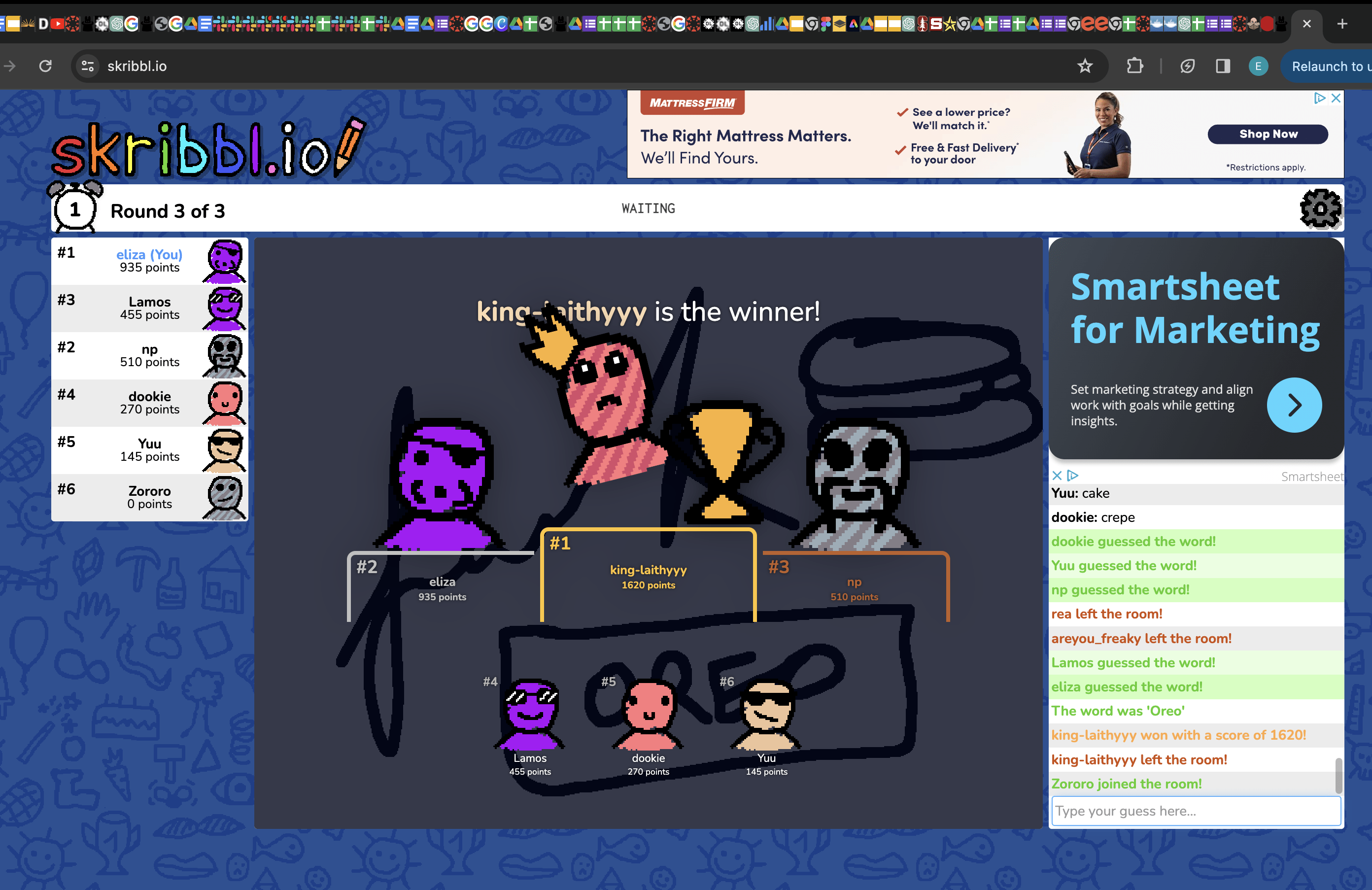The game that I played for this critical play was skribbl.io. skribbl.io is an Android game created by ticedev. Although the site does not specify the target audience, according to similarweb.com, the majority of visitors are between the ages of 18 to 24. But, according to other sites the game is targeted at a much younger population (children around 10). In my opinion, the game can be played by a wide age range of people and is made much more fun when you play with your friends.
In skribbl.io, each turn one person is a drawer and the other people are guessers. The draw-er is given 3 options of things to draw. They then begin to draw the item. The more people the guess correctly, the more points the person drawing gets. The quicker someone guesses, the more points they get. Players send their guesses in the chat, allowing others to see the guesses if the guess is incorrect (kind of like in Pictionary when you can hear others screaming out their guesses). At the end of the game the player with the most points is declared the winner.
Overall, I think that the aesthetics of the game make for a very enjoyable experience, but there are some mechanics that I could do without. There is a mechanic where you can dislike someone’s drawing. When I was drawing during my turn I was genuinely trying my best to draw a bookshelf, which one person guessed pretty early on, but others were disliking my drawing. I’m not really sure how this feature could contribute to the game in any positive way. One mechanic similar to this that I did like, however, was the ability to kick someone from the game. If someone was either not drawing at all or in another way breaking the rules, you could vote to kick them out which was great for the integrity of the game.
This game is interesting because it is much less of a judging game (like Apples to Apples and CAH are) and much more of a guessing game. Another difference between this and some of the other judging games is the lack of anonymity. In this game, it is easy for players to team up against another player (ie whoever is winning) by not guessing when they are drawing. Although this is possible, most people are not thinking about that at the moment. They are attempting to serve their own interests by gaining points for themselves, and therefore attempting to guess correctly. As mentioned earlier, there is also the option to like or dislike a drawing, adding an additional level of interpersonal interaction into the game.
Publicly guessing what is being drawn is a very interesting game mechanic that leads to interesting social interactions. Someone could very easily mistype their guess and someone re-type correctly and get more points than the person who initially mistyped. This can lead to a lot of frustration between friends who might accuse each other of cheating. Another aspect of the guessing component of this game that might get tricky is when people do not follow the rules. For example, in my game, someone wrote out the word that they were trying to get people to guess. This lead everyone to guess correctly. And, since this was the last round, that person won the game. This gave us no time to kick the player for breaking the rules before the winner was announced (pictured below).

I think that with the use of modern tech there could easily be automatic moderation of people drawing out words and people putting typos of the correct answers in the chat. This would add another level of integrity to the game, making it much less frustrating and easy to rig. Overall, though, I really enjoyed playing this game. The dynamics and mechanics make for a fun game that is honestly pretty difficult to bias unless you are just flat-out cheating. The guessing component allows for everyone to fully participate in each round, making the experience very immersive.




